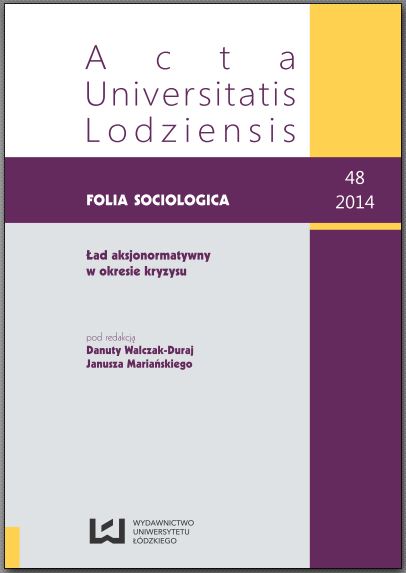Kultury zaufania a alienacja w ponowoczesności.
CULTURES OF TRUST AND ALIENATION IN THE SITUATION OF POST-MODERNISM
Author(s): Oksana KozłowaSubject(s): Social Sciences
Published by: Wydawnictwo Uniwersytetu Łódzkiego
Keywords: social trust; social capital; alienation; social anomie; islands of trust; vectors of persons’ activity; postmodernism
Summary/Abstract: In the article the reasons of activation of study of the social trust phenomenon as a key element of social capital are analyzed; tree historical phases of the development of culture of trust and at the same time three forms of it’s real existence in the modern society – low, middle and high – and the influence of each of these forms of trust on the development of the social capital in the situation of post-modernism are considered. Transformation of culture of trust is shown as a process deeply connected to the overcoming of alienation and anomie. The first form – conditional trust – leads to the fast growth of the material assets of the society and at the same time is stimulating the growth of alienation. The middle level of trust becomes the way of compensation of the mutual irresponsibility through the activation of social initiatives and at the same time leads to the emergence of “islands of trust”; between them the territories of distrust are becoming wider, which leads to the growth of fears, concerns about security. The third – high – form of culture of trust, which is the basis of the responsible activity, is gradually taking shape as a mindset of a free-from-alienation person, who wants to take part in the polyphonic life of modern society, in it’s multi-vector development, in the overcoming of crisis situations emerging in it, acting on behalf of himself, his group and the whole humanity simultaneously.
Journal: Acta Universitatis Lodziensis. Folia Sociologica
- Issue Year: 2014
- Issue No: 48
- Page Range: 5-17
- Page Count: 13

